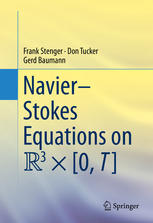

Most ebook files are in PDF format, so you can easily read them using various software such as Foxit Reader or directly on the Google Chrome browser.
Some ebook files are released by publishers in other formats such as .awz, .mobi, .epub, .fb2, etc. You may need to install specific software to read these formats on mobile/PC, such as Calibre.
Please read the tutorial at this link: https://ebookbell.com/faq
We offer FREE conversion to the popular formats you request; however, this may take some time. Therefore, right after payment, please email us, and we will try to provide the service as quickly as possible.
For some exceptional file formats or broken links (if any), please refrain from opening any disputes. Instead, email us first, and we will try to assist within a maximum of 6 hours.
EbookBell Team

5.0
100 reviewsIn this monograph, leading researchers in the world of numerical analysis, partial differential equations, and hard computational problems study the properties of solutions of the Navier–Stokespartial differential equations on (x, y, z, t) ∈ ℝ3 × [0, T]. Initially converting the PDE to a system of integral equations, the authors then describe spaces A of analytic functions that house solutions of this equation, and show that these spaces of analytic functions are dense in the spaces S of rapidly decreasing and infinitely differentiable functions. This method benefits from the following advantages:
Following the proofs of denseness, the authors prove the existence of a solution of the integral equations in the space of functions A ∩ ℝ3 × [0, T], and provide an explicit novel algorithm based on Sinc approximation and Picard–like iteration for computing the solution. Additionally, the authors include appendices that provide a custom Mathematica program for computing solutions based on the explicit algorithmic approximation procedure, and which supply explicit illustrations of these computed solutions.